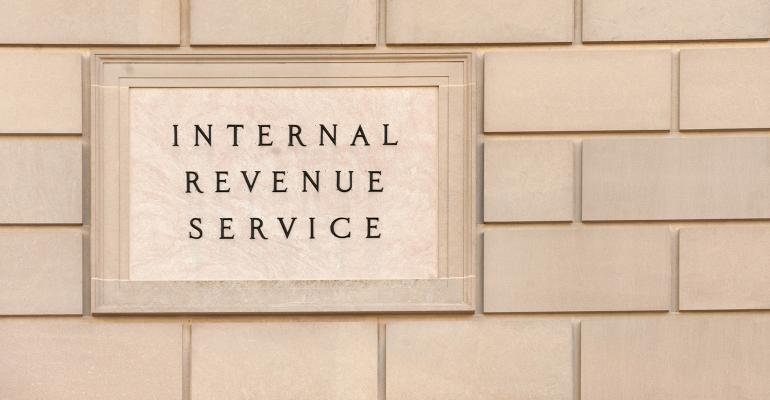(Bloomberg) -- The Internal Revenue Service recently bumped the income thresholds for its tax brackets by 5.4% for 2024, its latest adjustment to account for elevated rates of inflation.
The move is unlikely to produce a material change on most Americans’ tax burdens, according to financial advisers. Rather, it is designed to keep earners in their current tax bracket if their additional income is only keeping up with higher living costs. The standard deduction for income tax filings in 2024 will also be 5.4% higher.
A number of other IRS thresholds have also been raised for next year, including contribution limits on tax-deferred retirement accounts, limits on gifts and estate tax exemptions.
Below is a review of those key changes, which may help taxpayers lower their tax liability in a few areas, experts say.
Income Tax Changes
The standard deduction, or amount that the IRS allows taxpayers to deduct from their income, is increasing 5.4%. That means the figure for single taxpayers and married individuals filing separately will rise to $14,600, while that for head of households and married couples filing jointly will increase to $21,900 and $29,200, respectively.
In tax year 2024, there will also be a higher income threshold for each tax bracket, meaning Americans will get a “grace period” before additional income is taxed at a higher levy, said Ryan McKeown, a financial advisor at Wealth Enhancement Group. For example, single filers with an income over $100,525 and couples earning $201,050 will be hit with a 24% tax in 2024, up from $95,375 and $190,750 this year.
Retirement Accounts
The 2024 adjustments for inflation will also provide an opportunity for savers to contribute more to tax-deferred 401(k) accounts, allowing some to reduce their income tax liability, said Dana McCartney, a CPA with AICPA.
The IRS hiked contribution limits for 401(k)s by $500 to $23,000 in 2024, in addition to a $500 bump for IRA contributions to $7,000.
Older workers who can make “catch-up” contributions on these types of accounts should note the limit did not increase in 2024, however, remaining at $7,500 for 401(k)s and $1,000 for IRAs.
Family Planning
If you plan to transfer wealth to the next generation, gifts of up to $18,000 will be tax free in 2024, up from $17,000 in 2023, and the lifetime estate tax exemption will be $13.6 million, up from the $12.9 million.
Wealthy taxpayers should take advantage of these higher limits, advisers say, as the Trump-era tax cut that doubled the federal estate tax exemption will sunset in 2025; meaning the exemptions will effectively be cut in half.
Annual contribution limits for 529 savings accounts, meant for a child’s education, will also increase by $1,000 to $18,000 in 2024. 529 contributions are considered gifts for federal tax purposes, but they don't count against the lifetime gift tax exemption.
Additionally, starting in 2024, 529 account holders will be able to transfer up to a lifetime limit of $35,000 to a Roth IRA for a beneficiary. So if the next generation changes their higher education plans, the money you saved for college can be used for their retirement instead, said McKeown.
“Grandparents can save away and rest assured that their money won’t go to waste,” he said.
To contact the author of this story:
Paulina Cachero in New York at [email protected]





